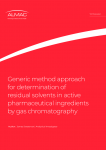Yseop has saved clients 20 man-years annually by automating certain applications - find out how

In an insightful interview, Tim Martin, vice president, product, at Yseop, discusses the company's recent advancements, notable collaborations, and the significant impact their AI-driven solutions are having on big pharma. He was speaking to senior editor, Liza Laws, during DIA Global in San Diego. From enhancing the efficiency of medical writers to ensuring data privacy and security, Martin says Yseop is at the forefront of digital transformation in the pharmaceutical sector.
LL: Can you provide an overview of Yseop's recent activities and developments in the AI and drug discovery space?
TM: Absolutely. Our main focus at Yseop is on content generation for big pharma companies, specifically within clinical trials and other workflows. Drug discovery, as you know, is the front end of the process, which has expanded exponentially with the use of AI. However, the downstream processes are equally impacted, and that's where our tools provide significant benefits for medical and scientific writers. With the increasing influx of new drugs entering clinical trials, there's a substantial need for efficient assistance, and Yseop aims to meet that need by enhancing human capabilities through our technology.
LL: How does Yseop's technology integrate with current drug discovery workflows?
TM: It's quite an intricate process since there are numerous software applications and workflows in pharma. We approach it from an end-to-end perspective, covering preclinical, clinical, and pharmacovigilance stages. Although we initially focus on clinical workflows, we plan to expand into other areas. The integration involves linking various documents, allowing for a smooth and automated workflow which significantly aids medical writers. We utilize AI to streamline these processes, making it easier for information contained in one document to feed into another, thereby accelerating workflow across the board. Compatibility with other widely used software packages, such as Viva, is also crucial to ensure our product fits seamlessly into existing workflows.
LL: What specific AI advancements has Yseop made recently that are particularly relevant to drug discovery?
TM: Recently, there's been a lot of buzz about generative AI, which is where most of our focus lies. We prioritize practical AI solutions that solve real user problems over hype. For our content generation platform, both symbolic and generative AI are valuable. Training and fine-tuning models are areas of interest because if we can develop backend technologies that meet user needs effectively, it’s immensely beneficial. Moving forward, we are focusing more on generative AI and creating proprietary methods to build a competitive moat around our products, ensuring they stand out in the market.
LL: Can you discuss any notable partnerships or collaborations Yseop has entered into over the past year?
TM: We’ve been quite active in forming new collaborations, particularly with top pharma companies. Many of our public announcements reflect trials and ongoing projects with numerous clients, which can be found on our website. Gaining traction with the top 25 pharma companies is vital for us as it brings industry awareness and validates our value proposition. This traction allows us to grow alongside our clients and provides us with invaluable opportunities to innovate and expand.
LL: How does Yseop ensure the accuracy and reliability of its AI-driven insights?
TM: Accuracy and reliability are paramount, especially in regulated industries like pharma. Unlike casual use cases of AI, such as chatbots for consumers, the implications of errors in clinical trial documentation are significant. Therefore, we have a higher threshold for accuracy. We use AI responsibly and incorporate quality checks within our platform to ensure the highest quality outputs for medical writers. Additionally, the final drafts are always overseen by medical writers, combining the speed and efficiency of AI with human expertise to validate and refine the results.
LL: What are the key benefits that your solutions bring to pharma companies?
TM: As a SaaS company, we offer an out-of-the-box solution that automates various documents within the clinical workflow, helping medical writing teams work more efficiently. Our platform accelerates tedious tasks, enabling companies to bring drugs to market faster. We incorporate advanced AI technologies to address specific problems, facilitate collaboration among medical writers, and create seamless linkages between documents to reuse content. Overall, our goal is to simplify the entire workflow, allowing medical writers to focus on content quality without worrying about the underlying technology.
LL: How do you address data privacy and security challenges in your AI applications?
TM: Data privacy and security are foundational to our approach. In pharma, a data breach could be catastrophic, so we prioritize end-to-end data protection. We architect our systems to ensure unauthorized access is impossible, and we have rigorous governance processes to ensure our employees handle data responsibly. This comprehensive approach to security ensures that our pharma clients can trust us with their sensitive information.
LL: Can you share any success stories or case studies where Yseop has significantly impacted drug discovery efforts?
TM: Without naming specific clients, I can share that we’ve already saved some clients 20 man-years annually by automating certain applications within our platform. And this is just with a couple of automation packs, not even the full suite of clinical applications we offer. By making medical writers more effective without drastically changing their workflows, we help them manage the growing volume of drugs entering the pipeline. This increased efficiency is crucial given the limited number of medical writers available to handle the expanding workload.
LL: What future developments or innovations can we expect from Yseop in drug discovery?
TM: Our focus remains on solving problems for our user base, which includes medical and scientific writers. We aim to develop a platform and applications that simplify every aspect of their job, offering both general solutions and customizable features to meet specific needs. Our future innovations will continue to enhance the effectiveness and efficiency of these professionals, enabling them to handle their tasks more easily and accurately.
LL: What is your main objective for participating in this year’s DIA?
TM: DIA is a fantastic event for connecting with our existing clients and meeting new prospects. Our sales team is eager to engage with potential customers, while I look forward to learning more about industry trends and the latest in digital transformation. It's a great opportunity to listen to discussions about advancements and challenges in the industry, which helps us better align our solutions with market needs.
LL: Have you received any specific feedback from customers during this event?
TM: Absolutely. We receive constant feedback through our customer advisory board, but events like DIA provide deeper insights from direct conversations with medical writers using our product. These discussions often reveal nuances and potential improvements, which are invaluable for our product team. The feedback has been overwhelmingly positive, particularly regarding our contributions to digital transformation and the practical impact of our AI tools.
LL: How long has Yseop been in operation, and how has the company evolved?
TM: Yseop has been around for over a decade, but we’ve transitioned significantly over the past five years. Initially, we provided professional services to pharma and financial customers. However, we shifted focus towards becoming a product company for pharma, developing a robust platform and applications to streamline workflows. After years of dedicated effort, we now offer a comprehensive solution addressing key challenges faced by medical writers, with a strong backlog of innovations to continue enhancing our offerings.
LL: There's always a buzz theme at industry events. What have you noticed recently?
TM: Indeed, themes like decentralized clinical trials have been prominent, especially post-COVID, which has accelerated digital transformation in pharma. The shift towards decentralized models due to the pandemic has prompted executives to embrace digital and AI-driven solutions more openly. While there's excitement around AI, it's crucial to balance innovation with the need for high-quality, regulated outputs. Integrating AI with human oversight ensures the best results in pharma, a sentiment echoed across industry discussions.
LL: There was a sense last year that the industry was rushing into AI. Do you think there needs to be a balance?
TM: Change management is challenging, particularly in pharma, which traditionally moves cautiously for valid reasons. While there's growing openness to digital transformation, it must be approached responsibly. AI should enhance human capabilities, not replace them, ensuring that high-quality, regulated results are maintained. The synergy of AI and human expertise is key to achieving optimal outcomes in pharma.
LL: Any final thoughts or additional points you’d like to add?
TM: We’re thrilled with the traction and positive feedback we’ve received. Yseop is in a unique position to drive meaningful change in pharma through AI, helping medical writers become more efficient and effective. Events like DIA are invaluable for understanding industry needs and showcasing how our solutions can make a difference. We look forward to continuing our journey of innovation and collaboration within the pharma industry.


























